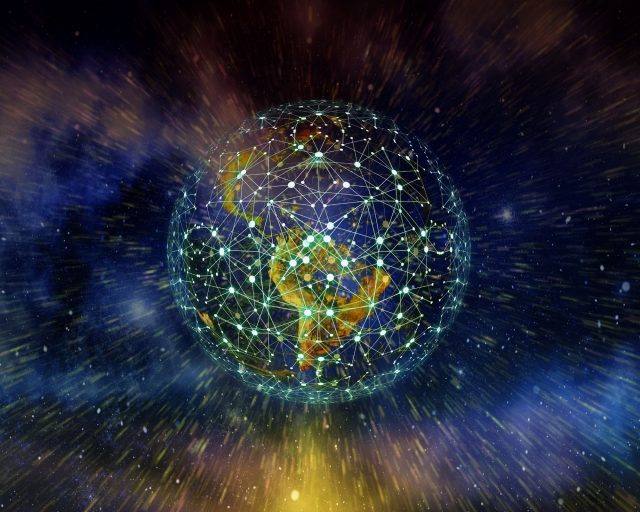Is smart tourism better tourism?

Nowadays, Information and Communication Technologies (ICT) are omnipresent. The digital age and its innovations in ICTs have changed society as well as economic and environmental development profoundly. ICT innovations are perceived and identified as one of the crucial game-changers in reaching Sustainable Development Goals.1 In this context, “smart” has become a buzzword. Gretzel, Sigala, Xiang and Koo define the concept as technological, economic, and social developments supported by technologies that are based on big data, exchange of information and the interconnectivity between different technological innovations in the physical and digital world. For instance, economies benefit from innovation, competitiveness, and entrepreneurship by allowing value creation and new forms of collaboration through smart technologies.2
Given that tourism, as an information-intense industry, is highly dependent on ICTs, it is no surprise to see the concept of “smart” being applied to the field of tourism. 2 In recent years, smart has become a new industry standard, especially within public organizations, and is somewhat praised as the new solution for pressing problems and challenges such as sustainability, overtourism or the efficient use of resources. The European Commission, for example, implemented the “Smart Tourism initiative” in order “to promote smart tourism in the EU, network and strengthen destinations, and facilitate the exchange of best practices”3. The initiative awards cities for their innovative achievements regarding sustainability, accessibility, digitalization, and cultural heritage as tourism destinations.

Retrieved from canva.com
Smart tourism, the saviour?
To understand the challenges as well as opportunities of smart tourism, it is crucial to get familiar with the concept itself. As stated by Gretzel et al., smart tourism can first and foremost be identified as the logical progression from traditional tourism and e-tourism.2 While e-tourism refers to the broad adoption of ICTs or social media within the tourism value chain, smart tourism takes you even one step further in the transformation process of ICTs in the industry. Instead of only implementing new and innovative ICTs, the smart tourism concept follows a more holistic approach to bridging the digital and physical world. Through the application of advanced and intelligent ICTs, stakeholders at tourism destinations collect, exchange and process data from different sources (physical infrastructure, government, organizations, etc.) and transform it into on-site experiences and business value propositions. Hereby the focus lies on efficiency, sustainability, and experience enrichment.2
Moreover, smart tourism consists of smart destinations, smart experiences, and smart businesses. Finally, as noted by Pencarelli, the optimal outcome or vision of smart tourism are smart tourists that are supported by smart technology to behave more responsibly towards the environment as well as the local community.4 Taken one step further, they even go through a transformation process towards establishing sustainable daily habits for greater well-being and sustainability. The theoretical concept of smart tourism almost sounds too good to be true. Therefore, I asked myself the question if the smart tourism concept is feasible. Does smart automatically mean good solutions for everyone? And does smart tourism really make tourism better, and hence, more sustainable? Or does the smart tourism conversation produce tunnel vision?
The ecosystem challenge
In contrast to a tourism business-centric ecosystem supported by technology, a smart tourism ecosystem is much more complex. It includes a variety of stakeholders such as touristic and residential consumers, DMOs, different (non-touristic) suppliers and social media companies, that are not necessarily interacting with or are not dependent on each other in a linear value chain. Furthermore, a smart tourism ecosystem is not a closed system and allows new business models to enter at any time.5 For example, touristic and residential consumers are capable to act as producers, becoming destination marketers by sharing their experiences on social media or directly consuming data provided by others in the ecosystem. Moreover, data, as well as ICT, is used by businesses to create new services of value or enrich tourism experiences.

Retrieved from canva.com
From my point of view, this complexity of the smart tourism ecosystem makes it more difficult for destination managers or decision-makers in businesses and governmental organisations to identify and understand the relevant interaction points to form and prioritize their strategies, objectives, and tactics accordingly. DMOs are not yet agile enough to address the challenges arising from the ever-changing environment in which they are operating. This could involve risks of mismanagement and potential negative impacts for all tourism stakeholders that are difficult to even be considered in the first place.
In this context, it should also be noted, that smart tourism ecosystems cannot be created but rather evolve from the technological infrastructure and regulatory foundations provided by external (non-touristic) stakeholders5. Therefore, the outcome of smart tourism development and its formation of smart tourism ecosystems might not even lie within the managerial control of tourism decision-makers. This becomes clearer by looking at the impacts of sharing economy concepts in tourism: next to its benefits sharing platforms have had also disruptive effects on the competitiveness of e.g. hotels, leading to tensions in the housing markets and hence, have resulted in historic centres with little authentic local communities to be experienced by tourists.
The data challenge
The involvement of new, innovative technology and the use of big amounts of personal data brings its own challenges to smart tourism development. Here, the effects of technology-supported life should be explored in more detail. ICTs, such as the smartphone, are part of daily routines and their influence alters global economies, society, and individuals. In the past, consumers used technologies to mainly support their lives. Nowadays, they form digital identities with social networks and the dependency on ICTs is ever-growing. As a result, social interactions, identity formation, mental capabilities, opinion-making, and of course consumer choices are impacted profoundly by the ICT economy.6

Retrieved from canva.com
According to Gössling, ICT innovations are widely accepted as a positive input to the development and its many affordances, meaning its support with information and advice, services related to tourism, social networks, or orientation, are embraced by consumers – and businesses. However, this overlooks the many social costs and risks of ICT innovation.6 Today, consumers are willing to share their personal information and data concerning social interactions, health, views and opinions, personality, and economic situation mainly with corporations such as Facebook, Google, Airbnb etc. Those have almost limitless opportunities for private data collection and can easily gain consumer control for their own economic benefit.6
Yes, data can be helpful, but how it is used and managed lies still with humans. In the context of smart tourism, it is important for destination managers and decision-makers in the public sector to understand the affordances and concessions of ICTs, so the purpose of smart tourism development is not to just track and profile tourists for simple revenue growth. Especially social but also environmental issues need to be considered. Therefore, smart tourism development should aim to gain certain independence from big players in the ICT economy, implement supporting and ethical regulations and drive its own ICT innovations and investments. This comes with another challenge. DMOs, which often exist solely for marketing purposes, do not have the power within the ecosystem to influence or even implement certain guidelines or regulations needed to build a sustainable, smart infrastructure.
In addition, privacy concerns and cyber security can be identified as key factors for touristic and residential consumers to use smart tourism technologies. If governmental and public organisations, as well as businesses within the smart tourism ecosystem, fail to address tourists’ needs for privacy and security, it would present a definite exclusion criterion for visiting the destination. 7 Although the need for privacy and security can vary from one individual to another, it must be a conditioning variable for governmental and public organisations in smart tourism development.
The technology challenge
The trust in smart technology and enjoyment of technology-enriched experiences also plays a critical role in smart tourism development. To benefit from experience co-creation, smart tourism destinations must capture touristic and residential consumers’ level of acceptance and usage of smart technologies. However, this is rather complex. At destinations, consumers’ willingness and ability to use technology vary widely. Moreover, the potential negative impacts of intensive technology use on consumers and their experiences should be considered. Such effects could be information overload or loss of authenticity.8 Consequently, not every destination might be equally suitable for smart tourism development and implications for smart technology should be examined carefully according to their target groups. Furthermore, once smart technologies are implemented, it is important to evaluate and analyse their real impacts.

Retrieved from canva.com
Towards better tourism
Research shows that ICTs and specifically social media, support and can assist in sustainable development in tourism9. By using technological, human, and social resources smart tourism destinations seek sustainability to improve the life of local communities and enrich the tourist experience. However, it should not be the goal of destination managers and decision-makers in public organisations to just implement smart technologies to follow a megatrend. And although the theoretical concept of smart tourism is indeed promising better tourism, smart tourism ecosystems and the development of smart tourism destinations bring several challenges – especially related to the human factor, hence, the managers, decision-makers etc. Those call for further research to get a deeper understanding, develop comprehensive frameworks and identify managerial implications.
To fully benefit and create competitive and sustainable destinations, collaboration between the different stakeholders is key.10 Governmental and public organizations in cooperation with the local communities and the relevant tourism stakeholders need to become more agile and provide strategic and regulatory groundwork as well as the relevant technological infrastructure. Moreover, smart destinations and tourism businesses should concentrate on a human-centric experience design approach.11 By understanding how humans are impacted by smart technology, and how technology can assist in creating more meaningful experiences or even support transformations to greater well-being and sustainability, smart tourism can become better tourism.
References
1 Sachs, J. D., Schmidt-Traub, G., Mazzucato, M., Messner, D., Nakicenovic, N., & Rockström, J. (2019). Six transformations to achieve the sustainable development goals. Nature Sustainability, 2(9), 805-814.
2 Gretzel, U., Sigala, M., Xiang, Z., & Koo, C. (2015). Smart tourism: foundations and developments. Electronic markets, 25(3), 179-188.
3 European Commission. (2021). European Capitals of Smart Tourism. Retrieved 13th October 2021: https://smart-tourism-capital.ec.europa.eu/index_en
4 Pencarelli, T. (2020). The digital revolution in the travel and tourism industry. Information Technology & Tourism, 22(3), 455-476.
5 Gretzel, U., Werthner, H., Koo, C., & Lamsfus, C. (2015). Conceptual foundations for understanding smart tourism ecosystems. Computers in Human Behavior, 50, 558-563.
6 Gössling, S. (2021). Tourism, technology and ICT: a critical review of affordances and concessions. Journal of Sustainable Tourism, 29(5), 733-750.
7 Jeong, M., & Shin, H. H. (2020). Tourists’ experiences with smart tourism technology at smart destinations and their behavior intentions. Journal of Travel Research, 59(8), 1464-1477.
8 Femenia-Serra, F., Neuhofer, B., & Ivars-Baidal, J. A. (2019). Towards a conceptualisation of smart tourists and their role within the smart destination scenario. The Service Industries Journal, 39(2), 109-133.
9 Gössling, S. (2017). Tourism, information technologies and sustainability: an exploratory review. Journal of Sustainable Tourism, 25(7), 1024-1041.
10 Cavalheiro, M. B., Joia, L. A., & Cavalheiro, G. M. D. C. (2020). Towards a smart tourism destination development model: Promoting environmental, economic, socio-cultural and political values. Tourism Planning & Development, 17(3), 237-259.
11 Stankov, U., & Gretzel, U. (2020). Tourism 4.0 technologies and tourist experiences: a human-centered design perspective. Information Technology & Tourism, 22(3), 477-488.
- Is smart tourism better tourism? - September 25, 2022